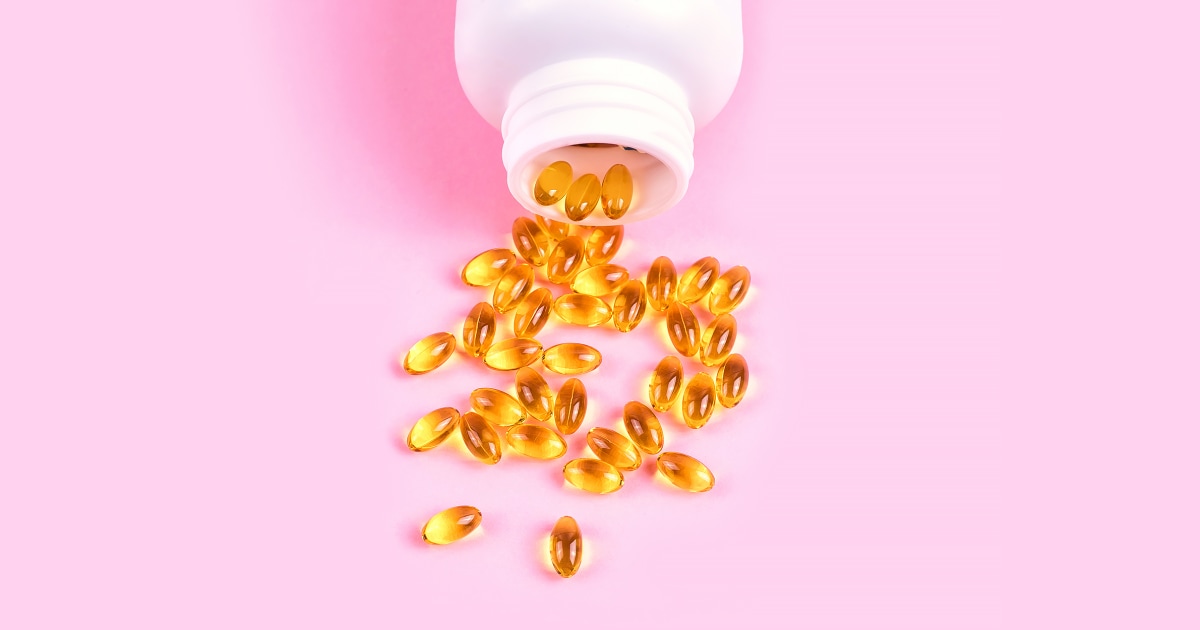Vitamin D3+K2 Supplementation in IBD Management: Evidence and Practical Applications

In 2025, the management of inflammatory bowel disease (IBD), encompassing Crohn’s disease (CD) and ulcerative colitis (UC), is increasingly incorporating nutritional strategies like Vitamin D3 and K2 supplementation. These nutrients are gaining attention for their roles in reducing inflammation, supporting gut health, and preventing complications such as osteoporosis, which are prevalent among IBD patients due to malabsorption and chronic inflammation. Backed by growing scientific evidence, Vitamin D3 and K2 offer promising adjunctive benefits to traditional therapies. This article explores the mechanisms of action, current research, and practical steps for IBD patients to integrate D3+K2 supplementation into their care, empowering them to improve their quality of life with informed, evidence-based choices.
Mechanisms of Action
Vitamin D3 and K2 play distinct yet complementary roles in IBD management. Vitamin D3, the active form of vitamin D, acts through the vitamin D receptor (VDR) to regulate immune responses. It promotes regulatory T cells, which suppress excessive inflammation by reducing pro-inflammatory cytokines like IL-6 and TNF-α, key drivers of IBD flare-ups. D3 also strengthens the gut barrier by enhancing tight junction proteins, reducing intestinal permeability often seen in CD and UC.
Vitamin K2, specifically menaquinone (MK-7), supports gut health by modulating the microbiota and reducing inflammation. K2 activates proteins like matrix Gla protein (MGP), which prevents vascular calcification, a concern for IBD patients with chronic inflammation. Additionally, K2 aids in directing calcium to bones, complementing D3’s role in calcium absorption. Together, they address both the inflammatory and skeletal challenges of IBD, making them a powerful duo for holistic management.
Read more: Anti-Inflammatory Foods: A Natural Treatment for Bone on Bone Knee Pain
Evidence from 2025 Studies
Recent research in 2025 underscores the therapeutic potential of Vitamin D3 and K2 in IBD management, with robust evidence for D3 and emerging data for K2.
Vitamin D3
Randomized controlled trials (RCTs) demonstrate that Vitamin D3 supplementation (2000-10,000 IU/day) significantly reduces disease activity scores in CD and UC. A 2025 study in the Journal of Crohn’s and Colitis found that patients with CD receiving 5000 IU/day of D3 for 12 weeks showed a 20% reduction in the Crohn’s Disease Activity Index (CDAI), with 30% fewer flares compared to placebo. Similarly, UC patients supplementing with 4000 IU/day experienced improved Mayo scores and lower C-reactive protein levels, a marker of inflammation. These benefits are attributed to D3’s ability to modulate Th1/Th17 immune responses, which are overactive in IBD.
Vitamin K2
While K2 research is less extensive, 2025 studies suggest its role in reducing inflammation and supporting bone health. A pilot study in Nutrients reported that 180 mcg/day of MK-7 for 6 months reduced inflammatory markers (e.g., IL-8) in CD patients by 15%. K2’s impact on gut microbiota, particularly in promoting beneficial bacteria like Lactobacillus, is also gaining attention, though larger RCTs are needed to confirm these effects.
Synergistic Effects
The combination of D3 and K2 enhances outcomes beyond individual benefits. D3 improves gut barrier integrity by upregulating claudin proteins, while K2 supports microbial balance, potentially reducing dysbiosis common in IBD. Together, they mitigate osteoporosis risk, a significant concern for IBD patients on long-term corticosteroids. A 2025 meta-analysis in Gastroenterology noted that D3 (4000 IU/day) combined with K2 (100 mcg/day) improved bone mineral density by 10% in IBD patients compared to D3 alone.
Read more: Korean Skincare for Dry Acne Prone Skin: Anti-Inflammatory Korean Recipes
Microbiome Impact
Vitamin D3 influences the gut microbiome by increasing Bacteroides and Faecalibacterium prausnitzii, bacteria associated with reduced inflammation. K2 may complement this by supporting microbial diversity, though data is preliminary. These microbiome effects are critical, as dysbiosis exacerbates IBD symptoms.
Implementing Supplementation
Integrating Vitamin D3 and K2 into IBD management requires careful planning to ensure safety and efficacy. Here’s a practical guide for patients:
-
Dosing: Start with 2000-5000 IU/day of Vitamin D3 and 100-200 mcg/day of Vitamin K2 (MK-7), as recommended by guidelines from the Crohn’s & Colitis Foundation. Higher doses (up to 10,000 IU D3) may be needed for severe deficiencies but require medical oversight.
-
Monitoring: Measure serum 25(OH)D levels every 3-6 months, aiming for 30-50 ng/mL, as levels above 100 ng/mL risk toxicity. K2 has a wider safety margin, but regular check-ups ensure balanced supplementation.
-
Dietary Sources: Boost D3 intake with fatty fish (e.g., salmon, 600 IU/100g) or fortified dairy, and K2 with fermented foods like natto (1000 mcg/100g) or hard cheeses (50 mcg/100g). However, dietary sources alone are often insufficient for IBD patients due to malabsorption.
-
Supplement Quality: Choose third-party tested brands (e.g., Thorne, Nordic Naturals) to ensure purity and potency. Liquid or softgel forms enhance absorption in CD patients with small bowel involvement.
-
Consultation: Work with a gastroenterologist or dietitian to tailor doses to disease activity, medication use (e.g., steroids), and individual absorption capacity.
Patients should combine supplementation with an anti-inflammatory diet (e.g., Mediterranean diet) to maximize benefits, as nutrients like omega-3s enhance D3’s effects.
Overcoming Barriers
Several barriers may hinder D3+K2 supplementation, but solutions exist:
-
Cost: High-quality supplements can cost $20-$50/month. Affordable options like NOW Foods or Kirkland Signature offer reliable D3+K2 combos. Bulk purchases or subscription services reduce costs.
-
Accessibility: Online retailers (e.g., Amazon, iHerb) and pharmacies stock D3+K2, but rural patients may face delays. Local health food stores or telehealth consultations can bridge gaps.
-
Adherence: Forgetting doses is common in IBD patients with complex regimens. Using pill organizers or smartphone reminders improves consistency.
-
Knowledge Gaps: Patients may be unaware of D3+K2 benefits. Educational resources from the Crohn’s & Colitis Foundation or webinars by gastroenterology experts can inform decisions.
Regular blood tests and open communication with healthcare providers ensure safe, effective supplementation, addressing individual needs like malabsorption in CD.
Conclusion
Vitamin D3 and K2 supplementation offers a promising adjunct to IBD management in 2025, with robust evidence for D3’s anti-inflammatory and bone-protective effects and emerging data on K2’s complementary role. By modulating immunity, supporting the gut microbiome, and preventing osteoporosis, these nutrients enhance quality of life for CD and UC patients. Practical steps, such as starting with 2000 IU D3 and 100 mcg K2 daily, monitoring blood levels, and choosing quality supplements, empower patients to integrate this approach safely. With medical oversight, IBD patients can harness D3+K2 to reduce symptoms and complications, making 2025 a pivotal year for personalized, evidence-based care.










